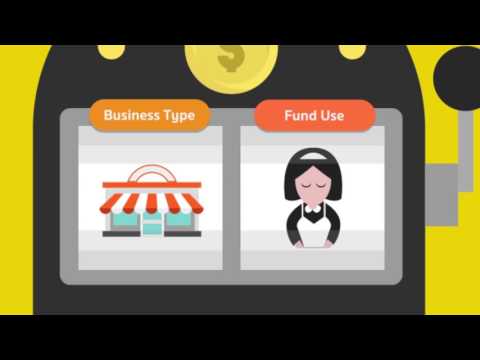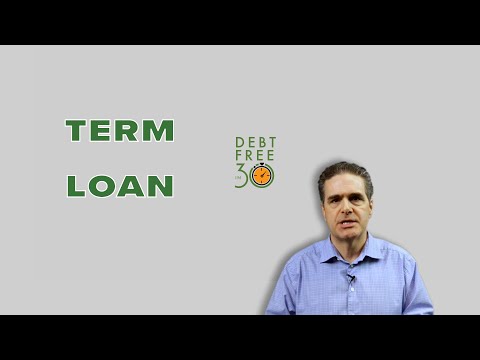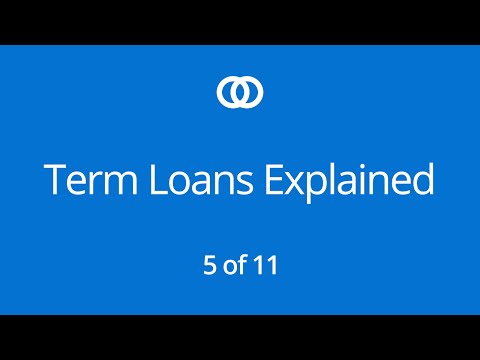In the journey of homeownership, deciding on a mortgage can feel like standing at a crossroads, each path offering different adventures and challenges. Among the most significant choices you’ll face is the length of your loan term—a critical determinant of not just your monthly payments, but the overall cost of your mortgage. So, let’s lace up our metaphorical black Boots and embark on an explorative trek to understand how the choice of your loan term can lead to substantial mortgage savings over time.

Understanding Loan Term Essentials in Mortgage Planning
Definition of ‘loan term’
In its simplest form, the loan term is the duration allotted to repay your loan in full, considering regular payments. Think of it as the lifespan of your loan; from infancy, when the balance is high, to maturity when you celebrate that final payment.
Brief history of mortgage loan terms
Interestingly, loan terms have Evolved significantly Since The inception Of modern Mortgages. From the 1930s, when home loans were typically five to ten years with a balloon payment, to today, where 30 and 15-year terms are more prevalent, there has been a marked shift in how we finance our homes.
Current trends in mortgage loan terms
As we gaze upon the current mortgage terrain, homeowners today lean towards longer loan periods—30 years being the fan favorite. However, a trend of customizing to either increase or decrease the loan timeline is emerging, making the choice less about ‘standard’ and more about ‘suitable for your situation’.

The Pivotal Role of Loan Term in Mortgage Cost Calculations
Impact on monthly payments
Short and sweet or long and leisurely? That’s the question when it comes to the loan term and its impact on your wallet. Short loan terms translate to higher monthly payments but less overall interest. On the flip side, a longer loan term eases the monthly bite at the expense of increased interest over the loan’s lifetime.
The total interest paid over the life of the loan
Picture this: two paths, both diverging in a metaphorical wood of financial decisions—one leading to a higher monthly cost but lower total interest, the other to an easier monthly expense but with a heftier total interest tab at journey’s end.
Loan term and the amortization schedule
Every payment you make is a mini-battle between principal and interest. The loan term dictates how this battle unfolds over time through an amortization schedule. Early on, interest throws heavier punches, but as time progresses, principal starts to make a comeback.

| Loan Term Type | Definition | Common Lengths | Affects On | Examples | Payment Frequency | Collateral |
|---|---|---|---|---|---|---|
| Short-term Loan | Loans to be repaid in a short duration typically with higher payments | Typically less than 3 years | Higher monthly payments, higher interest rates | Auto loans (2-8 years), Personal loans | Monthly, sometimes weekly or bi-weekly | Usually unsecured, but can be secured for larger loans |
| Intermediate-term Loan | Loans with a middle range duration often used for business operations | Between 1 to 3 years | Moderate monthly payments, potentially lower interest rates than short-term loans | Business loans for equipment or initial startup costs | Monthly from company’s cash flow | Often secured by company assets |
| Long-term Loan | Loans that are repaid over an extended period with usually lower payments | Between 3 to 25 years, with mortgage loans commonly 15 to 30 years | Lower monthly payments, higher total interest cost over time | Mortgage loans (15-30 years), some business loans, student loans | Monthly or quarterly from profits or cash flow | Typically secured by assets, such as a house or business equipment |
| Mortgage Loan | A loan used to purchase real estate, secured by the property being purchased | Short-term: <15 years, Common: 15 & 30 years, Long-term: >30 years | Monthly principal and interest payments, and interest rate offered | Home mortgages | Monthly | Secured by the property |
Short vs. Long Loan Terms: A Comparative Analysis
Pros and cons of short-term mortgages (e.g., 10-15 years)
Pros:
– Quick build-up of equity
– Lower total interest
Cons:
– Heavier monthly payments
– Less room for other financial opportunities
Advantages and disadvantages of long-term mortgages (e.g., 30 years)
Pros:
– Lower monthly payments
– Flexibility in budget
Cons:
– Slower equity build-up
– More interest paid over time
Case studies: Real-life examples of mortgage savings through strategic loan term selection
Consider Jenny, who chose a 15-year term and paid off her beachside cottage faster than you can say “surf’s up”, saving thousands in interest. On the other hand, Mark went with a 30-year plan, allowing him to invest in his taco truck business, which is now the talk of the town at Tonights debate about the best local eats.

Loan Term Adjustments and Their Strategic Financial Implications
Refinancing to change the loan term
Think of refinancing like a loan term wardrobe change. You switch out your current mortgage for one that better suits your financial style, whether that’s a trimmer 15-year number or a more relaxed 30-year ensemble.
The role of prepayments in loan term management
Paying more than your scheduled payment is like putting your loan term on a diet—the principal sheds quickly, saving you on interest and potentially shortening the loan’s lifespan.
Considerations for adjustable-rate mortgages and loan term impact
Mix an adjustable-rate mortgage (ARM) with the concept of loan terms, and it’s a dance of numbers where the beat is controlled by market rates—a changing tempo that can alter the balance between interest and principal payments.

Decoding Loan Term Variations: An Analysis Across Different Lenders
Typical loan terms offered by various lenders
Just like the endless types of pasta, lenders offer a smorgasbord of loan terms. Most common, of course, are the 15 and 30-year varieties, but there’s an increasing move towards personalization, offering more “al dente” options.
How competitive markets influence loan term options
Let’s just say when lenders are like contestants on “The Bachelor” vying for attention, you’ll find more creative loan term options being proffered. They might even throw in a short story about jimmy Kimmel matt damon to keep things interesting.
Lender-specific policies affecting loan term choices
Each lender has its own recipe for loan terms, seasoned with their unique policies and guidelines. It’s important to ask the right questions and read the fine print as if you were trying to understand the complexities of converting 20lbs To kg without a calculator.
Loan Term and Its Correlation with Interest Rates
The relationship between loan term and interest rates
It’s like a see-saw: generally, longer loan terms mean higher interest rates. It’s a compensation thing—creditors charging more for the added risk of a longer game.
Impact of economic factors on choosing the right loan term
Just as weather influences your outfit choice, economic climates can steer you towards a different loan term. Inflation, job market stability, and life events all play their part in this decision-making tango.
Forecasting interest rate trends and their potential effects on loan terms
Predictive studies lean towards increased customization in loan terms. As for interest rates, it’s akin to guessing the fate of characters in a binge-worthy TV series—educated bets can be made, but surprises are all part of the plot.
Implications of Loan Term on Borrower Profiles and Mortgage Approvals
How loan term preferences vary among different demographics
The landscape here is varied—millennials might prefer the flexibility of longer terms, while baby boomers could opt for shorter terms to align with retirement.
Loan term considerations for first-time buyers versus investment properties
Your first date with homeownership, as a first-time buyer, might present a longer loan term as the more attractive option, providing wiggle room for other new home expenses. With investment properties, it’s more about attracting potential suitors with a robust profile, perhaps favoring shorter loan terms for faster equity and potential gains.
How loan term affects mortgage approval ratios and qualification criteria
Lenders love stability, and your choice of loan term can either serenade them or give them cold feet. Shorter terms often require stronger financials, whereas longer terms could provide a smoother passage through the qualification straits.
Advanced Strategies: Utilizing Loan Term for Mortgage Saving Maximization
Balancing loan term with other financial goals
Consider this a financial buffet where you must balance the size of your loan term platter with the servings of your other goals—an intricate balancing act between near-term needs and long-term dreams.
The role of loan term in debt consolidation strategies
If you find yourself juggling too many debt balls, consolidating under a single loan term could be the act that brings down the house (in a good way). A longer loan term can consolidate your debts into a manageable performance.
Innovative financial products and their loan term structures
The financial market is always cooking up something new. Some of the latest dishes combine the flexibility of different loan terms within the same mortgage, offering a taste test of both worlds.
The Future of Loan Terms and Emerging Mortgage Savings Tactics
Predictive studies on where loan terms are headed
The crystal ball hints at greater adaptability and customization. As borrowers demand more control, loan terms are set to become as varied as streaming service options—there’s something for everyone.
Technological impacts on mortgage terms and savings
Tech’s role here is like giving everyone a GPS on our mortgage journey, providing tools for better navigation, comparison, and ultimately, savings through informed choices on loan terms.
Evolving borrower expectations and the customization of loan terms
As borrowers become savvier, they’re looking for the Netflix of mortgages—a service with personalized recommendations that perfectly match their viewing, or rather, financial, profiles.
Loan Term Wisdom: Expert Insights and Unconventional Thinking
Opinions and predictions from industry Partsgeek
Industry experts forecast a shift towards fluid loan term offerings akin to choosing car parts from Partsgeek—each borrower can pick and mix to create a loan that runs like a dream.
Psychological factors in choosing a loan term
The decision can often boil down to personal comfort—some borrowers sleep better with the lower monthly payments of a longer loan term, while others find peace in knowing they’ll be debt-free sooner with a shorter term.
Challenging traditional paradigms in mortgage term decisions
The longstanding 30-year loan term tradition is being questioned as new generations seek structures that mirror their rapidly evolving lifestyles and financial aspirations.
Conclusion: Loan Term and the Landscape of Mortgage Savings
In bringing our loan term odyssey to a close, we return to the familiar hearth of homeowning dreams. The path you take—whether measured in 15 or 30 years, or somewhere in-between—shapes not just your immediate budgetary landscape but the vista of your entire financial future.
To wrap up, remember the power of informed decision-making in the realm of mortgage savings is akin to an open secret—known to all, wielded effectively by those who take the time to understand its nuances. When you stand at that crossroads, the right choice on your loan term can lead you to a horizon of savings and financial wellness. So choose wisely, prospective borrowers, for the ripple of today’s decisions will be felt across the placid lake of your future.
And that, dear friends, is a wrap on the complex yet rewarding world of loan terms—a world where knowledge isn’t just power, it’s savings.
How Your Loan Term Can Make or Break Your Mortgage Savings
Cutting It Short: The Perks of a Shorter Loan Term
Let’s dive right in—did you know that picking a shorter loan term can be like stumbling upon a hidden treasure chest? Imagine this: You choose a 15-year mortgage over the typical 30-year one. Sure, you’ll have higher monthly payments, but hey, you’ll also pay a whole lot less in interest. It’s akin to a financial magic trick, where the wand wave is your signature on the loan agreement. Now, that’s what you call getting bang for your buck!
But it gets even better. While you’re saving all that interest, you’re also building equity at a pace that would make the Road Runner jealous! Equity is just a fancy term for how much of your house you actually own outright, and with a shorter loan term,( you’re sprinting to the finish line.
Taking the Scenic Route: The 30-Year Stretch
On the flip side, what about those who prefer the scenic route with a 30-year loan term? It’s the classic choice, like vanilla ice cream or that favorite pair of comfy jeans. With a longer loan term, your monthly payments are way smaller, keeping your wallet feeling a bit more plump each month. Sure, it’s true you’ll pay more interest over time—kinda like the price of admission for the longer, leisurely walk through mortgage land.
And here’s a nugget for you: Opting for the 30-year loan gives you some flexibility. You can channel your inner savvy spender and use the extra cash for other investments that might have your bank account singing “Hallelujah!” Now that’s some financial acrobatics we can all appreciate.
The Middle Ground: Finding Your Sweet Spot
What if you’re torn between the two? Say you’re eyeing that 30-year loan for the breathing room, but you don’t want all that extra interest hanging over your head like a dark cloud. Is there a middle ground? You bet your bottom dollar there is!
Some folks take the 30-year term but make extra payments when they can. This move is like a secret handshake with your mortgage—it’s saying, “I want to keep things chill, but also throw in a surprise party now and then.” And boy, do those extra payments make a difference, shrinking your interest and getting you to that “Paid in Full” milestone faster.
Remember, the loan term you pick can either be a slow and steady tortoise or a swift hare in the race to mortgage freedom. Want to do the math and see which is the better deal for you? Check out this mortgage savings calculator.( It’s easier to use than tying your shoelaces, and it’ll show you, in cold, hard numbers, what you stand to save.
Wrapping It Up: The Takeaway on Your Loan Term
Alright, folks, let’s wrap this up like a burrito brimming with good stuff. Choosing the right loan term is like setting the course for your financial ship. Shorter might get you to port faster, but with heavier cargo (those pesky higher payments). Longer might mean a leisurely sail, with more time to enjoy the sea breeze (aka more disposable income each month).
Whichever path you choose, make sure it fits you like your favorite pair of socks. Oh, and don’t forget to sprinkle in a dash of extra payments for flavor. They might just be the secret sauce in your mortgage repayment stew.
Now that you’ve reached the end of this little trivia trail, you’re likely wiser, with a noggin full of know-how about how your loan term can either inflate or deflate your mortgage balloon. Whether you’re a penny-pinching pro or an easy-going eagle, pick the loan term that has your financial feathers soaring to new heights.
Ready to hammer out the details and chat with a pro? Swing by and have a chinwag with an expert who can help you navigate the enchanting waters of mortgage terms and savings: Reach out to a mortgage advisor.( Trust me, they’ve got more knowledge in their noggin than a library has books!
And there you have it! Armed with these nuggets of wisdom, may your mortgage journey be as smooth as jazz on a Sunday morning. Keep strutting down that loan term runway, flaunting the style that suits you best!

What are the 3 types of term loan?
When you’re in the market for some extra cash, you’ll likely run into three types of term loans: short-term, medium-term, and long-term. Short-term loans can be a quick fix, typically lasting less than a year; medium-term loans are the middle-of-the-road option, lasting anywhere from one to five years; and long-term loans are the marathon runners, stretching out beyond five years and sometimes lasting up to 30 years or more.
What is loan period or term?
So, what’s the deal with loan period or term? It’s the time you’ve got to pay back the money you borrowed — think of it as a deadline that can span months, years, or even decades, depending on the loan we’re gabbing about.
How long can a loan term be?
How long can a loan term be, you ask? Well, it can be as quick as a 30-day payday loan or as lengthy as a 30-year mortgage. There’s a wide spectrum, but generally, personal loans might max out at around 5-7 years, while your home loans can tie the knot with you for 30 years or even longer!
What is an example of a term loan?
An example of a term loan? Picture buying a slick new car with a loan you agree to pay off in 5 years — that’s your classic term loan, where you get a lump sum upfront and then make regular payments until it’s all squared away.
Is a 3 year loan short term or long term?
A 3-year loan, my friend, is typically considered short-term. Sure, it might not be a flash in the pan like some ultra-short options, but in the grand scheme, three years is like a quick coffee break in the world of loans.
What are the 2 most common types of loans?
The two most common types of loans you’ll bump into are personal loans and home loans. Personal loans are like the Swiss Army knives of loans — pretty versatile — while home loans are like a dedicated cheese knife, specialized for one big purpose: helping you nab that sweet, sweet real estate.
How does a loan term work?
Alright, how does a loan term work? It’s like setting a timer on your loan life; when you borrow the cash, you and the lender agree on a “due by” date in the future. Until time’s up, you’re making regular payments, often monthly, to chip away at the debt by the agreed finish line.
What does 5 year term 25 year amortization mean?
Stumbled upon a “5-year term with 25-year amortization” and scratched your head? No sweat — it means you’re spreading your payments out as if the loan is a 25-year gig, but surprise, the whole balance is actually due in just 5 years. It’s like baking a cake with a slow oven but having it ready for the party way sooner!
What happens when your loan term is up?
So, what happens when your loan term is up? It’s crunch time — you either pay off any remaining balance in one go, often known as a balloon payment, or, if you’ve been playing your cards right, you’re popping the champagne because you’re all paid up!
What is a good loan term?
Talking about a good loan term is like asking how long a piece of string is — it really boils down to what suits your budget snugly. Short-term loans might have higher payments but overall you’re paying less interest, while long-term loans ease up the monthly pinch but might cost you more in the long run.
What is the shortest term for a loan?
The shortest term for a loan? You’re looking at payday loans where it’s game over on your next paycheck; these can have terms as brief as a week or two — talk about a quick sprint!
Which type of loan has lowest interest rate?
Which type of loan has the lowest interest rate? Drumroll, please… Typically, it’s secured loans, like a mortgage or a car loan, where you’ve put something of value on the line; lenders love that extra security blanket, so they often reward you with lower rates.
What are the disadvantages of a term loan?
The disadvantages of a term loan? Well, they can be a party pooper if you’re not careful. There are interest charges, potential penalties for early repayments (talk about a “thanks for nothing” moment) and, if it’s a secured loan, you could risk losing whatever you put up as collateral if things go south.
Who is eligible for term loan?
Who’s eligible for a term loan? Lenders have their checklist: they’re peering at your credit score, your income, your debts, and maybe even the color of your socks — okay, not really the socks. Jokes aside, they’re looking to see if you’re a safe bet for them to hand over the cash.
Do term loans have interest?
Do term loans have interest? Yep, they sure do — it’s like the lender’s price tag for letting you borrow their dough. The rate can be fixed or variable, but either way, it’s tacked onto your repayments, making the cost of borrowing a bit heftier.
What is a term loan B vs term loan A?
Decoding term loan B vs term loan A? Here’s the skinny: Term Loan A is usually your go-to guy for shorter-term, lower-interest loans with a regular amortization. Meanwhile, Term Loan B plays hardball with longer terms, often higher interest rates, and a balloon payment waiting at the end instead of steady amortization.
What is classified as a term loan?
Classified as a term loan is any loan with a set repayment schedule and a fixed end date. From mortgages to car loans, if it’s got an expiration date, it’s in the term loan family.
What is a term loan also known as?
A term loan, also known as? It’s simply a loan that’s not forever — think of it as hiring a car rather than buying it. You’ve got it for a specific period, and once it’s over, it’s back to square one.
What are loan term options?
Loan term options are the buffet of repayment periods you’ve got to pick from. Want quick and painless? Go short-term. Prefer a leisurely repayment stroll? Long-term is your jam. Choices vary by lender, but you’ll typically find a range to suit your financial appetite.



